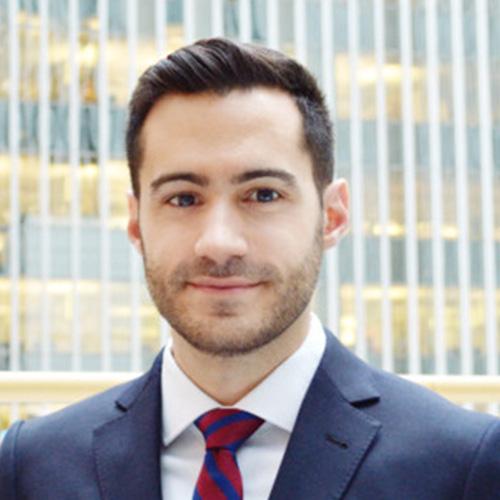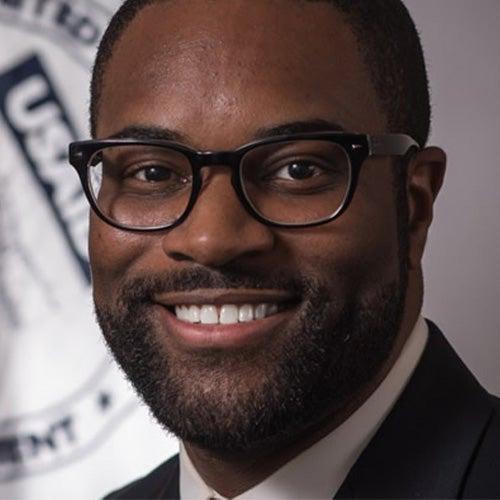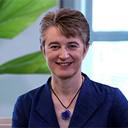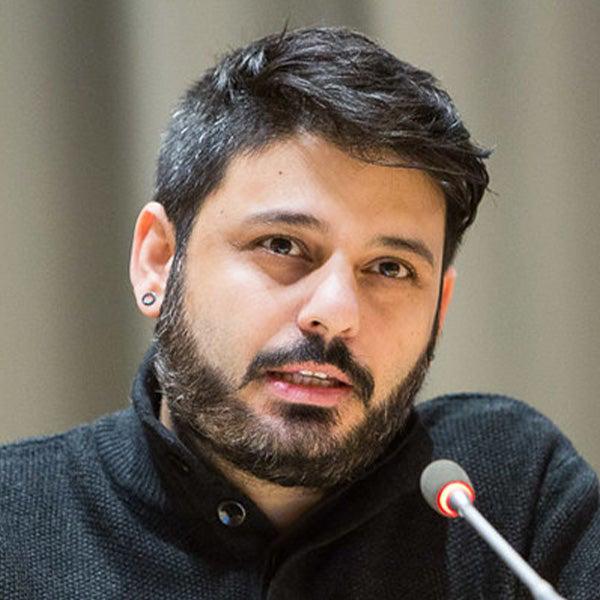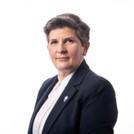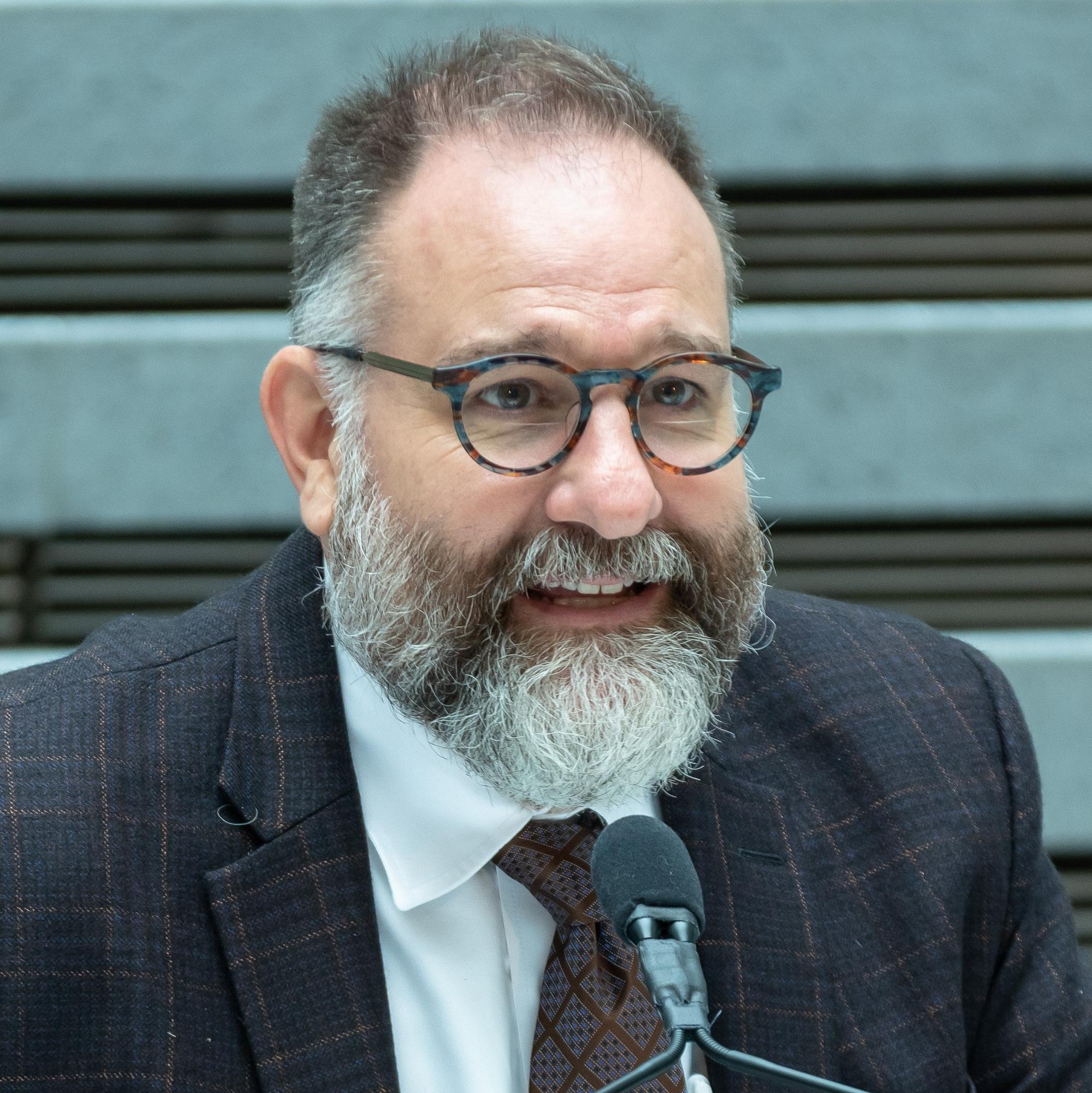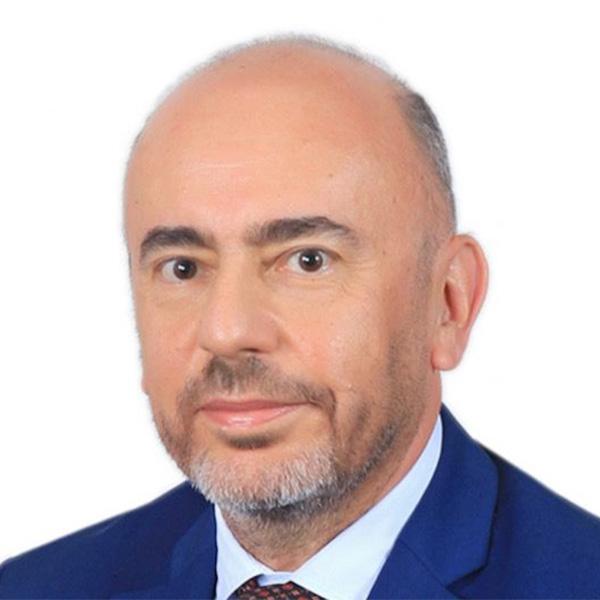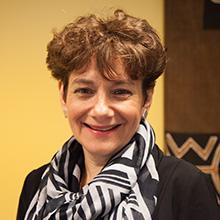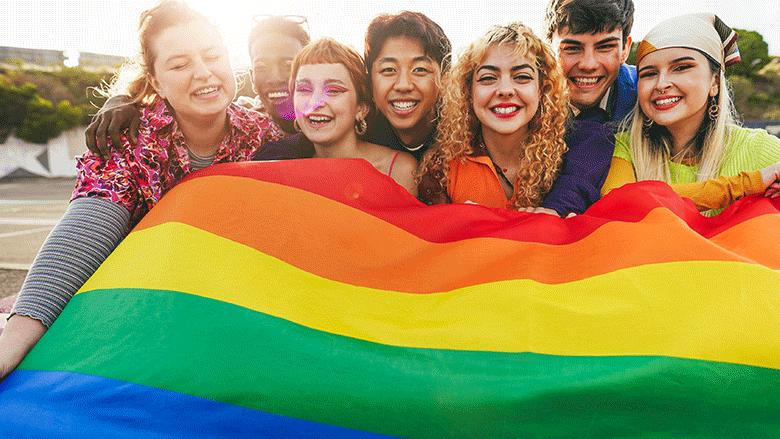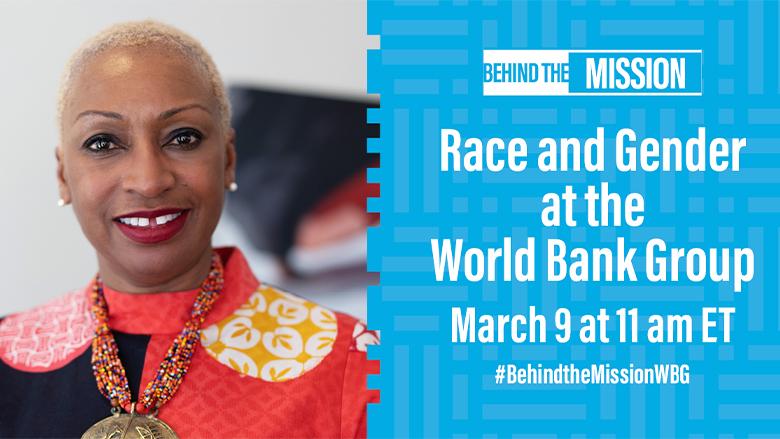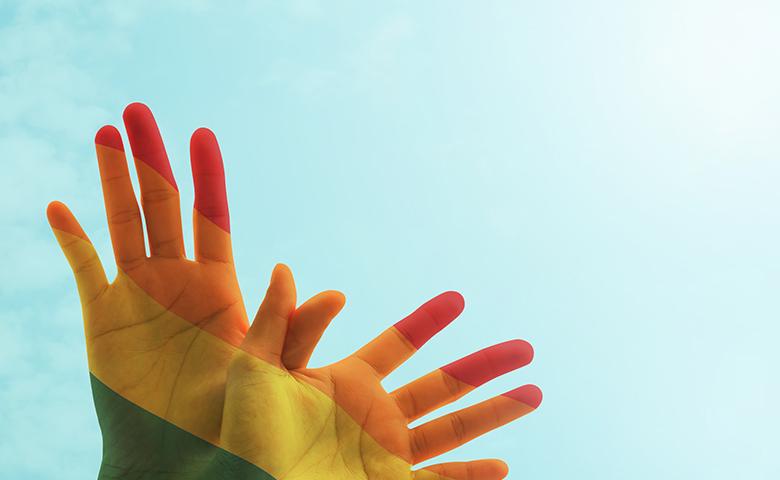Inclusive Laws and Policies: IDAHOTB 2022

Inclusive Laws and Policies: IDAHOTB 2022
- Watch with simultaneous interpretation in: Français | Español -
LGBTI people have made tremendous progress globally in claiming their rights and promoting inclusive societies. The International Day Against Homophobia, Transphobia, and Biphobia (IDAHOTB) is an opportunity to honor this progress and reflect on the path forward to achieving full equality of opportunity.
On May 18th, the World Bank commemorated IDAHOTB, convening a panel of government, civil society, and other partners on the importance of laws in advancing the rights of sexual and gender minorities globally. The event examined the role of inclusive laws and policies in supporting LGBTI people and included a discussion of the lessons learned and way forward from the Bank’s Equality of Opportunity for Sexual and Gender Minorities report.
Continue the conversation online on Twitter at @WBG_Inclusion and using the hashtag #IDAHOTB.
00:00 Welcome! IDAHOTB 2022
03:17 Equality of Opportunity for Sexual and Gender Minorities report
09:41 Visions from the Asian Development Bank
13:24 Ensuring equality of LGBTI people in Kosovo
21:05 Protecting and bolstering the rights of sexual and gender minorities
29:15 Justice and equal rights for LGBTI people in the Arab world
34:56 Facing challenges on inclusion and equality in Lebanon
36:50 Ensuring implementation of inclusion public policies
38:02 Collaboration from international organizations
40:25 Building consensus in Kosovo
45:30 USAID: Good practices in the dialogue with client countries
47:21 Social classes, ethnicity, fragile context
54:53 Knowledge sharing and learning by civil society organizations
57:31 Closing remarks
Ask Our Experts
We are live! Today’s moderator is Louise Cord – Global Director for Social Sustainability and Inclusion here at the World Bank.
Liam Mullins
This event is also available in French and Spanish and will have live captioning in English.
It’s not too late to submit your questions for our panel – or to take our poll. Louise, our moderator, will announce the results later in this event.
Liam Mullins
What role do inclusive laws and policies play in the effort to achieve equality of opportunity for sexual and gender minorities (or LGBTI people)?
Liam Mullins
My name is Liam, and I work here at the World Bank. I will be joined today by John Arzinos, our expert blogger for today’s event. Say hello, John!
Liam Mullins
Hi everyone! I'm John Arzinos, Consultant at the World Bank, and co-lead of the EQOSOGI initiative.
John Arzinos / World Bank
We will now hear from the World Bank’s Advisor on Sexual Orientation and Gender Identity, Clif Cortez.
Clif will present an overview of the EQOSOGI initiative.
Liam Mullins
If LGBTIQ community challenge the gender norms policies how fast is it that even in Africa the world bank can help to accelerate Sexual Orientation and Gender Identities education?
Fifi
@Fifi That's a good question, Fifi. Change is a slow process and we need to make sure we are careful and get it right from the beginning. This is why the World Bank is pursuing data generation efforts like the Equality of Opportunity for Sexual and Gender Minorities, that can inform policy actions and change. The EQOSOGI report provides good practice policy recommendations on inclusive education for sexual and gender minorities. I encourage to check out the publication here: www.worldbank.org
John Arzinos / World Bank
We will now hear from the Asian Development Bank’s Bruno Carrasco, who will deliver opening remarks.
Liam Mullins
Does race matter to / in world bank?
lawrence malu
@lawrence malu The World Bank Group draws strength from our diversity, and we are committed to addressing racial discrimination and prejudice in our workplace and in our work around the globe. Our shared values include justice and equity for all and always treating others with dignity and respect, areas we continue to improve upon. At the core of the World Bank Group’s development mandate is a commitment to protecting those who are most vulnerable so that everyone, regardless of their gender, race, religion, ethnicity, age, sexual orientation, social origin or disability, can reap the benefits of development. We focus on increasing access to decent jobs, better services, and more secure livelihoods that help traditionally excluded people to participate fully in society and live with dignity.
To learn more, see live.worldbank.org
John Arzinos / World Bank
Apologies for that technical glitch. We will now turn to our esteemed panel, featuring Nazlie Bala from the Kosovo government, Jay Gilliam from USAID, and Tarek Zeidan who heads up Helem, an NGO based in Lebanon. Full bios are available at the bottom of this page.
Liam Mullins
Interested in learning more about how the World Bank’s support for social inclusion globally? Follow us on Twitter: twitter.com
Liam Mullins
Question for Nazlie? Submit it using the “Q&A” tab.
Liam Mullins
Question for Nazlie Bala: What is the government of Kosovo doing to adopt the new Civil Code and allow gay couples marry legally? When can we expect this law to be approved in the Parliament next?
Nezir Sinani
Hello @Nezir. I hope Ms. Bala addressed your question. If time allows, our moderator will ask Nazlie to expand later in the program.
Liam Mullins
The backlash towards advocating inclusive policies is real for local actors, how has the WB been enabler in such situations? What measures have you put in place to avoid portraying an equally dangerous indifference stance?
Reuben Silungwe
@Reuben Silungwe Thank you for your question, Reuben. The World Bank is committed to tackling the exclusion of marginalized groups, including sexual and gender minorities, and we are continuously working to strengthen our approach to SOGI inclusion. The World Bank contributes to the work of people on the gorund striving for change through its data generation efforts. People and organizations can use the data generated by the World Bank, like EQOSOGI, to advocate for more inclusion and acceptance. Furthermore, our Environmental and Social Framework, which ensures that sexual and gender minorities do not face discrimination in the World Bank’s investment lending, also emphasizes transparency, accountability, consultation, participation, non-discrimination, and social inclusion. You can learn more here: www.worldbank.org
John Arzinos / World Bank
2022 U.S. Interagency Report on the Implementation of the Presidential Memorandum on Advancing the Human Rights of LGBTQI+ Persons Around the World: www.state.gov
Ryan K
Questions for Tarek, Jay, or Nazlie? Submit your questions through the "Q+A" function
Liam Mullins
Link to USAID's new interactive learning module on "Integrating LGBTQI+ Considerations in Education Programming" www.edu-links.org
Ryan K
It would be great if the resources given by Jay could be shared
Barbra
Hi @Barbra, two resources have been posted above. Let me know if there's something else specifically.
Liam Mullins
There’s still time to take our poll, too. Louise, our moderator, will announce the results later in this event.
Liam Mullins
A need to consider African countries which are highly homophobic
Bernhadt Mkumba
@Bernhardt Mkumba Hi Bernhadt. Today, 69 countries around the world criminalize people based on their sexual orientation or gender identity (SOGI). The EQOSOGI initiative seeks to increase awareness about the role inclusive laws can play in removing regulatory and legal barriers to inclusion. I encourage you to check out the publication: www.worldbank.org
John Arzinos / World Bank
thankyou Helem for noting this gap in reaching those most at need through development and humanitarian assistance programmes. It would be good to hear from the panel about their approaches in the response to Afghanistan - where civil society is struggling to find safe passage for LGBTQI+ Afghans not able to leave or in the region and with no real prospect of accessing assistance.
Leanne MacMillan she/her
@Leanne - thank you for your question. We will send the moderator your question.
Liam Mullins
Thanks so much @Jay Gilliam. Could you share good practices in your dialogue with client countries?
Maria Beatriz Orlando
My question is how will civil society be abundantly included in data collection efforts as we are trusted partners in countries where governments are not. Civil society has had to take up roles (that some governments fail to) and we need funding for this vital work. we are establishing HATE CRIME reporting platforms and APPs (working with the private sector) to provide direct support to victims/survivors and to build data to evidence hate crimes and to build in processes of accountability (now in 12 countries but with more to bring online if we can find the resources).
Leanne MacMillan she/her
Hi @Maria - we will send the moderator your question.
Liam Mullins
We will do our best to answer as many questions as possible.
Liam Mullins
Interested in learning more about the World Bank's Equality of Opportunity for Sexual and Gender Minorities (EQOSOGI) report? Check it out here: www.worldbank.org
Liam Mullins
Question to Tarek: Around the world, tireless LGBTI+ NGOs are making efforts to record phobic violence - usually following different methods and with different resources. Hence, what kind of initiatives can be done/are being done to ensure that these NGOs can learn from one another? What efforts can the world bank make to improve this work, and promote resources that can allow comparability of the data?
Egerton Neto
We are appealing to World agencies on gender equality and abuse and others international bodies to raise and make the lawsi about this critical issues, Because it's too rampant among countries especially developing nation's
maduguabdullahi784@gmail.com
Great question, @Maria!
Ryan K
Hi, wonderful presentations. Can Jay share the USAID country strategy for Ghana, now that LGBTQ+ community is under siege with a new bill before parliament, with expansive and severe punishments for the community, allies and even academics?
papa ako
@maduguabdullahi784 Thank you for your question. There is indeed a lot of variation on the laws regarding sexual orientation and gender identity issues around the world. EQOSOGI -a World Bank report- seeks to take stock of these differences and present the various laws in a comprehensive manner that would allow for comparisons and adoption of more inclusive laws.
John Arzinos / World Bank
Thanks so much for addressing this question USAID - it is very helpful and good to know this is a priority area.
Leanne MacMillan she/her
Thank you for submitting your questions! We hope you enjoyed today’s event. We will now close out with remarks from Mara Warwick, the World Bank’s Country Director for Tanzania, Malawi, Zambia and Zimbabwe.
Liam Mullins
Interested in learning more about how the World Bank’s support for social inclusion globally? Follow us on Twitter: twitter.com
Liam Mullins
Check out our latest blog, which details 3 ways to support inclusive futures for LGBTI people globally: blogs.worldbank.org
Liam Mullins
Thank you, Mara, and thanks to everyone who joined today's event. We hope you enjoyed! The recording will be made available later today on this same webpage.
Liam Mullins

